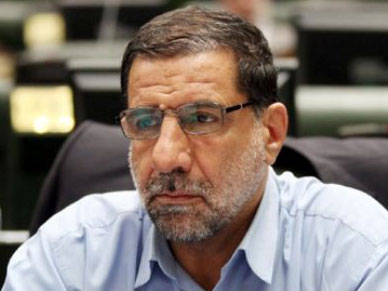Baku, Azerbaijan, Nov. 19
By Umid Niayesh - Trend:
Iran and the six world powers started a new round of negotiations over the Islamic Republic's nuclear program on Nov. 18 in Austrian capital city of Vienna.
This round of the talks is the final round of nuclear talks before Nov. 24 deadline, while the two sides stay remain divided on a number of key issues after nine round of talks aimed to reach a comprehensive deal. Iran and the P5+1 (the U.S. , Britain , France , Russia and China plus Germany ) earlier signed an interim nuclear accord, which took effect on Jan. 20 and expired six months later.
Iranian MP, Esmail Kovsari believes that if the U.S. continues to negotiations with excessive illegal demands and bullying, the talks will certainly fail.
Kovsari, who is a member of Iran 's Parliament National Security and Foreign Policy commission told Trend Nov. 19 that the U.S. administration is under pressure by regional countries including Israel, Saudi Arabia and Turkey.
"Especially Israel and Saudi Arabia don't want an agreement on the nuclear issue between the U.S. and Iran," the MP said.
"As long as the U.S. administration follows-up on Israel and Saudi Arabia interests and does not make independent decisions, no changes will be made in the country's position and the nuclear agreement would not be achievable," Kovsari argued.
Iran does not want negotiation only for negotiation, Kovsari said, adding negotiations should achieve fair results.
He explained what Iran would consider to be the fair result as a lifting sanctions, as well as removing the concerns of the international community over the Islamic Republic's nuclear program.
Iran has never violated Non-Proliferation Treaty (NPT) and the International Atomic Energy Agency (IAEA) inspectors have continually supervised Tehran 's nuclear program, Kovsari said, accusing the counter part of posing ambiguities that prevent achieving a solution.
"They accuse Iran of having no will for agreement, meanwhile, the Islamic Republic wants a bilateral solution not unilateral," Kovsari said.
The Iranian MP also rejected the U.S. envoy to the IAEA, Laura Kennedy's recent statements accusing Iran of not cooperating with the UN body. Kennedy said on Nov. 17 that the United States is disappointed with Iran 's failure to engage with the IAEA investigation into suspected atomic bomb research.
An IAEA report on Nov. 7 said Iran was failing to address suspicions it may have worked on designing an atomic bomb. Meanwhile Iran says it has no such aim and that its nuclear program is entirely peaceful.
The Iranian MP also called the US-led sanctions against Iran ineffective, saying the Islamic Republic is capable of producing its demands in all fields domestically under sanctions.
"The Islamic Republic is not concerned about the sanctions," Kovsari argued.
For instance, earlier the US did not fulfill its commitment to supply Iran with enriched uranium and Iran gained 20 percent enriched uranium from Argentine under the IAEA supervision in 1993, the MP said, adding once in 2010 they refused to supply Iran with fuel, the Islamic Republic produced its needed enriched uranium domestically.
It should be noted that the United States cut off the supply of highly enriched uranium fuel for the Tehran Nuclear Research Center, which forced the reactor to shut down for a number of years, until Argentina's National Atomic Energy Commission in 1987-88 signed an agreement with Iran to help in converting the reactor from highly enriched uranium fuel to 19.75 percent low-enriched uranium, and to supply the low-enriched uranium to Iran. The uranium was delivered in 1993.
According to a report by the Argentine justice department in 2006, during the late 1980s and early 1990s the U.S. pressured Argentina to terminate its nuclear cooperation with Iran.
Umid Niayesh is Trend Agency's staff writer.
You can follow him on Twitter @UmidNiayesh






